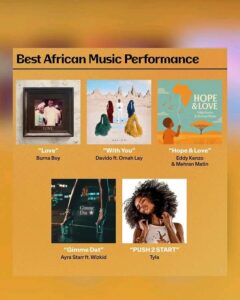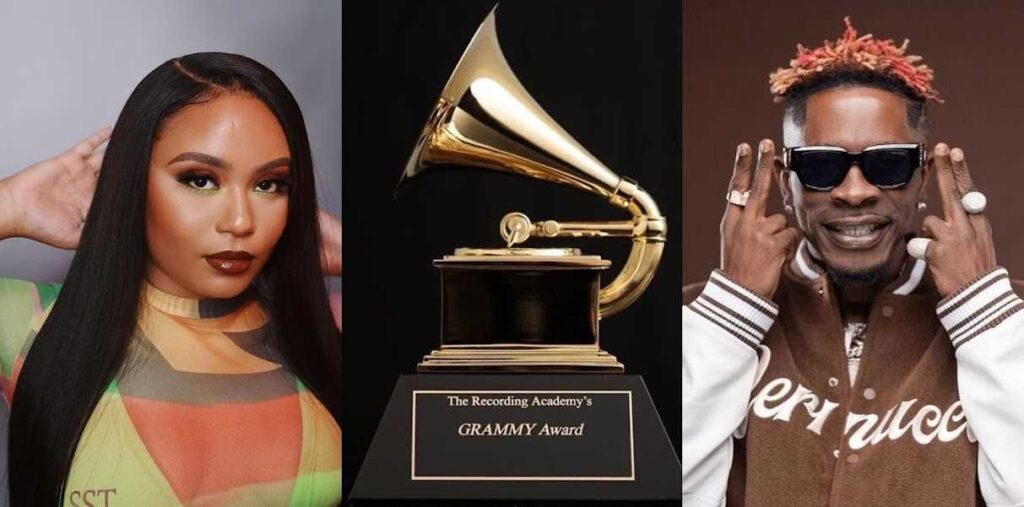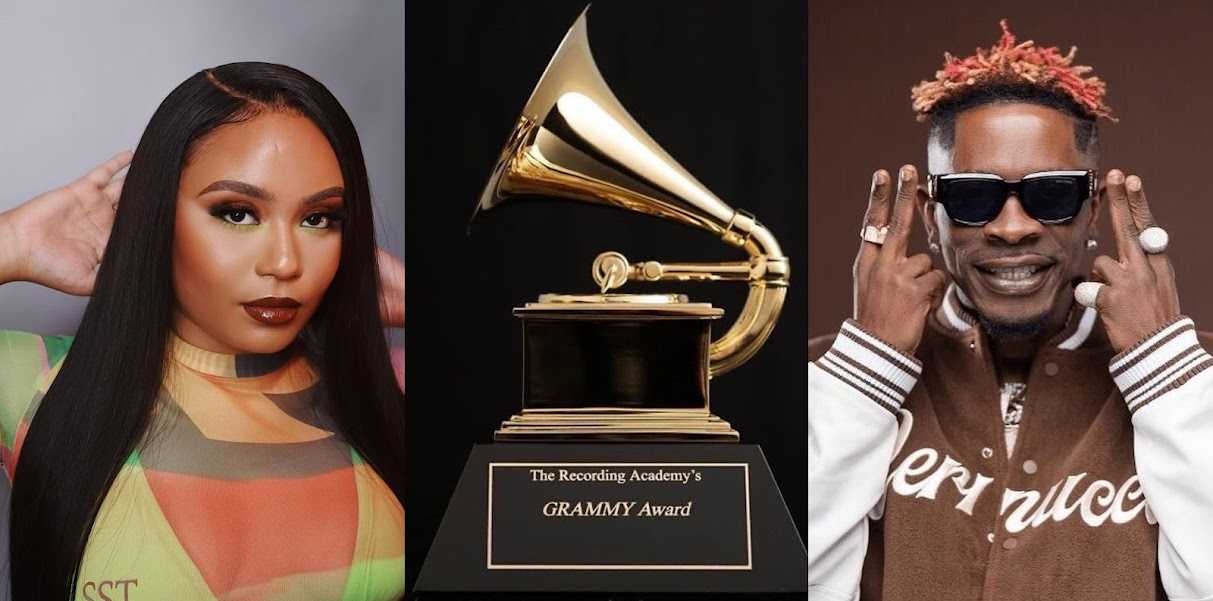Ghana’s music industry has once again faced disappointment on the global stage as no Ghanaian artists secured nominations in the Best African Music Performance category for the 2026 Grammy Awards. The announcement, made on November 7, 2025, reinforces a pattern that has been troubling for Ghanaian music fans and industry stakeholders alike: Nigeria continues to dominate international recognition for African music, leaving Ghana and other African countries struggling to break through.
This year’s Grammy nominations for the African category include Burna Boy with “Love You,” Davido featuring Omah Lay with “With You,” Ayra Starr featuring Wizkid with “Gimme Dat,” Tyla with “Push 2 Start,” and Eddy Kenzo featuring Mehran Matin with “Hope & Love” representing Uganda. Remarkably, four out of the five nominations went to Nigerian artists, underlining Nigeria’s continued dominance in Afrobeats and its growing influence on the international music scene.
For Ghana, the absence of stars such as Shatta Wale, Moliy, and Black Sherif is a hard blow. Despite the country’s long-standing musical heritage and the undeniable talent of its artists, Ghana has struggled to gain traction in Grammy circles. This trend raises serious questions about the strategies and structures in place to promote Ghanaian music globally. While Nigerian artists have mastered the art of combining local sound with global marketing strategies, Ghana’s approach has often remained limited to local markets and regional success.
One critical factor in this repeated snub is visibility. Nigerian artists have invested heavily in international collaborations, media campaigns, and partnerships that appeal directly to Grammy voters. From cross-continental features to global streaming strategies, Nigeria has created a formula that ensures its music reaches the right ears. Ghanaian artists, on the other hand, despite producing globally appealing music, have struggled to match this level of strategic outreach. Artists like Shatta Wale and Black Sherif have massive local and diaspora followings, yet Grammy recognition requires more than popularity, it demands global marketing, industry lobbying, and visibility in key international networks.

The absence of Ghanaian representation also reflects deeper systemic challenges within the country’s music industry. There is a noticeable gap in international branding and promotion, which limits the potential of Ghanaian artists to reach the Grammy stage. While the music itself is competitive, the backing mechanisms, management, label support, media visibility, and strategic collaborations, are often less aggressive than those seen in Nigeria. Ghanaian music stakeholders need to recognize that talent alone is not enough; strategic global positioning is essential to compete for awards at the highest level.
Despite this setback, Ghana’s music scene remains vibrant and influential. Afrobeat, Hiplife, and Drill are steadily gaining attention across Africa and among the global diaspora. Artists such as Moliy and Black Sherif have shown immense creativity, blending local sounds with contemporary genres, and earning millions of streams worldwide. Shatta Wale continues to be a cultural icon, known not only for his music but also for his impact on Ghana’s entertainment scene. These successes indicate that the talent is present—the challenge lies in amplifying Ghanaian music on platforms that count for international recognition.
Another important dimension to consider is the role of collaborations. Nigerian artists frequently leverage collaborations with global stars to increase their reach. Burna Boy, for instance, has worked with artists such as Ed Sheeran and Beyoncé, bringing his music into conversations that matter to Grammy voters. Ghanaian artists, while collaborating within Africa and occasionally with diaspora musicians, have not yet fully tapped into high-profile global partnerships that could boost Grammy visibility. Strategic collaborations could serve as the bridge Ghana needs to finally break the cycle of nominations snubs.
The repeated absence of Ghanaian artists in Grammy nominations should not be seen solely as a failure, it is also an opportunity. It calls for a reassessment of Ghana’s music export strategy, focusing on international networking, branding, and the professional structures that support artists on the global stage. Industry stakeholders, including managers, record labels, and media platforms, must develop a cohesive approach that positions Ghanaian music as competitive in international award spaces. This includes investment in global marketing campaigns, strategic collaborations, and active participation in international music forums and showcases.

The 68th Annual Grammy Awards will take place on February 1, 2026, at the Crypto.com Arena in Los Angeles. As the world celebrates African music, Ghanaian fans and stakeholders are left reflecting on the missed opportunities and the work needed to elevate their artists onto the global stage. The snub serves as a reminder that while Ghanaian music is culturally rich and immensely popular locally, translating that into international awards recognition requires strategic foresight, planning, and global positioning.
Ghana has the talent, the culture, and the creativity to compete with any African nation. Artists like Shatta Wale, Black Sherif, and Moliy have the artistry and fanbase to make a global impact. Now, the onus is on industry players to create the conditions for recognition at platforms like the Grammy Awards. With strategic action, Ghanaian music can rise to meet its potential, ensuring that the next Grammy cycle is one where Ghanaian talent finally claims its place on the international stage.
Grammys 2025: Beyoncé Leads as Full List of Nominations Revealed

